FALL/WINTER 2022









It is time for you to read a magazine. I am glad that you have chosen Iowa Auto Dealer to be the magazine that you’re going to read. A print magazine may seem like a curious way for a high-functioning trade association to deliver important information to the extremely busy people who work in Iowa’s automobile dealerships. I get it. Your job is fast-paced. The information coming at you is nonstop and there is a lot of it. Let’s face it: You don’t get much of the information you need to do your job in magazine format. But I stand by the statement that it is time for you to read a magazine.
You may have noticed that IADA’s email newsletter has shifted from a bi-weekly to a weekly delivery schedule, and the articles are intentionally brief and to the point with key data highlighted and in-depth resources linked for those requiring more detail and explanation. That newsletter is designed to get information to you quickly and in a format that can be read, understood, and acted on quickly. It reflects how IADA generally approaches the delivery of information to you. IADA staff takes great pride in maintaining a high level of member satisfaction, and that
almost always means delivering news to you quickly and succinctly. Almost always.
There are some topics, like those covered in this magazine, that simply require more time to research and to gather the opinions, advice, and guidance of the industry’s best experts. Likewise, there are topics that take more time for you to read and think about than some of the rapidfire content that we push to your inbox each week in the newsletter. The topics of employee benefits and OEM litigation, which are both featured in the pages ahead, are precisely the kind of subjects that demand our full attention and in-depth analysis.
Automotive retailing has a discouragingly high employee turnover rate and is experiencing a workforce shortage even more critical than the state and nation are experiencing generally. Not to focus on bad news, but litigation between Iowa’s auto dealers and their OEM “partners” is no longer a rare occurrence. While these are clearly urgent and important issues, they are going to take some time to work through, just like the pages of this magazine.
Thank you for taking the time to read Iowa Auto Dealer, especially if you are reading it in printed format. Like many of you, I am a heavy user of digital technology and get almost all of my news online and in the form of text alerts, tweets, and breaking news notifications. Naturally, I send and receive a lot more texts and emails than I do letters, but I know there is an important place for longer-form research, analysis, and reporting. IADA will continue to use this magazine as that place for Iowa’s automotive industry.
Bruce Anderson IADA President

1111 Office Park Road
West Des Moines, Iowa 50265
Phone: 800.869.1900
CHAIRMAN Jon McCoy
VICE CHAIRMAN Dave Wright
PRESIDENT Bruce Anderson
SECRETARY Josh VanNess
TREASURER Jim O’Halloran
IMMEDIATE PAST CHAIRMAN Matt Brown
DIRECTOR AT LARGE Tim Godfrey
DIRECTOR AT LARGE Danny Wilson
HEAVY DUTY TRUCK DIRECTOR Fred Grask
INDEPENDENT DIRECTOR J Olesen
DISTRICT ONE DIRECTOR Doug DeYarman
DISTRICT TWO DIRECTOR Lindsay McGrath
DISTRICT THREE DIRECTOR Jason Willis
DISTRICT FOUR DIRECTOR Carey Kemna
NADA DIRECTOR Jeff Weber
EDITOR Brittany Bungert
Iowa Auto Dealer (ISSN 2472-2634) is a bi-annual magazine produced for members of the Iowa Automobile Dealers Association.
© 2022 Iowa Automobile Dealers Association
COVER PHOTO The Iowa Supreme Court has the ultimate jurisdiction over many disagreements between dealerships and manufacturers.

In-depth topics require in-depth analysis. 04
Auto industry news from Iowa and beyond.
The Better Business Bureau’s Chris Coleman shares what he wants dealers to know. 12


Prepare your dealership for the future. 30
Use your IADA membership to its fullest. 32 ODDS
Thoughts on leadership.
Finding good employees—and keeping them—takes more than good luck.
Takeaways from legal disputes between manufacturers and Midwestern dealerships.





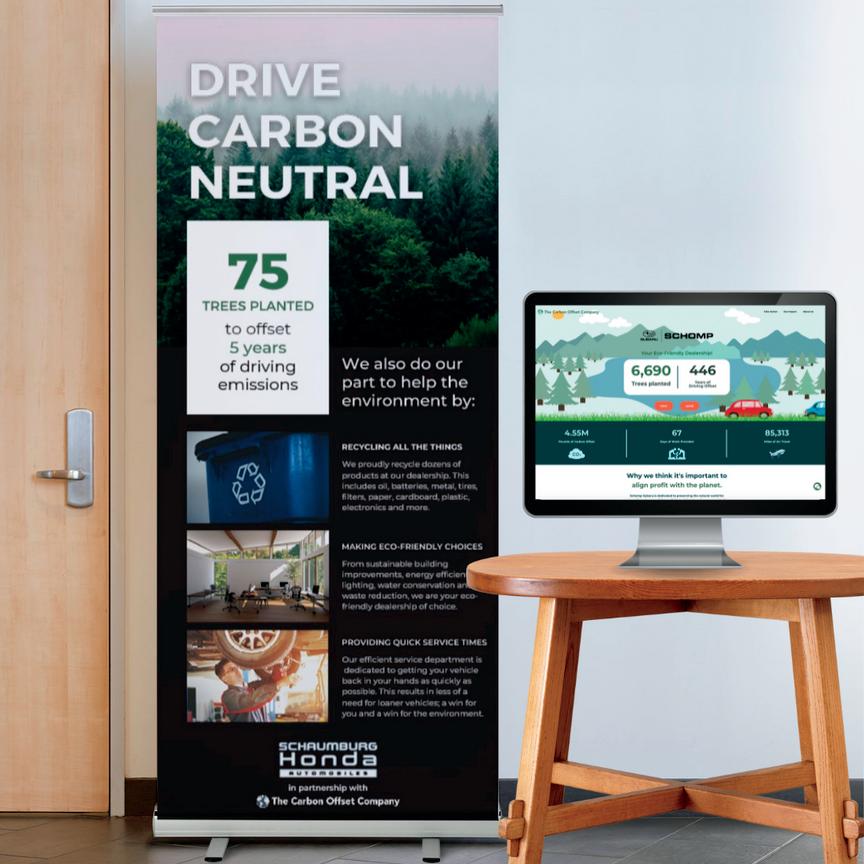


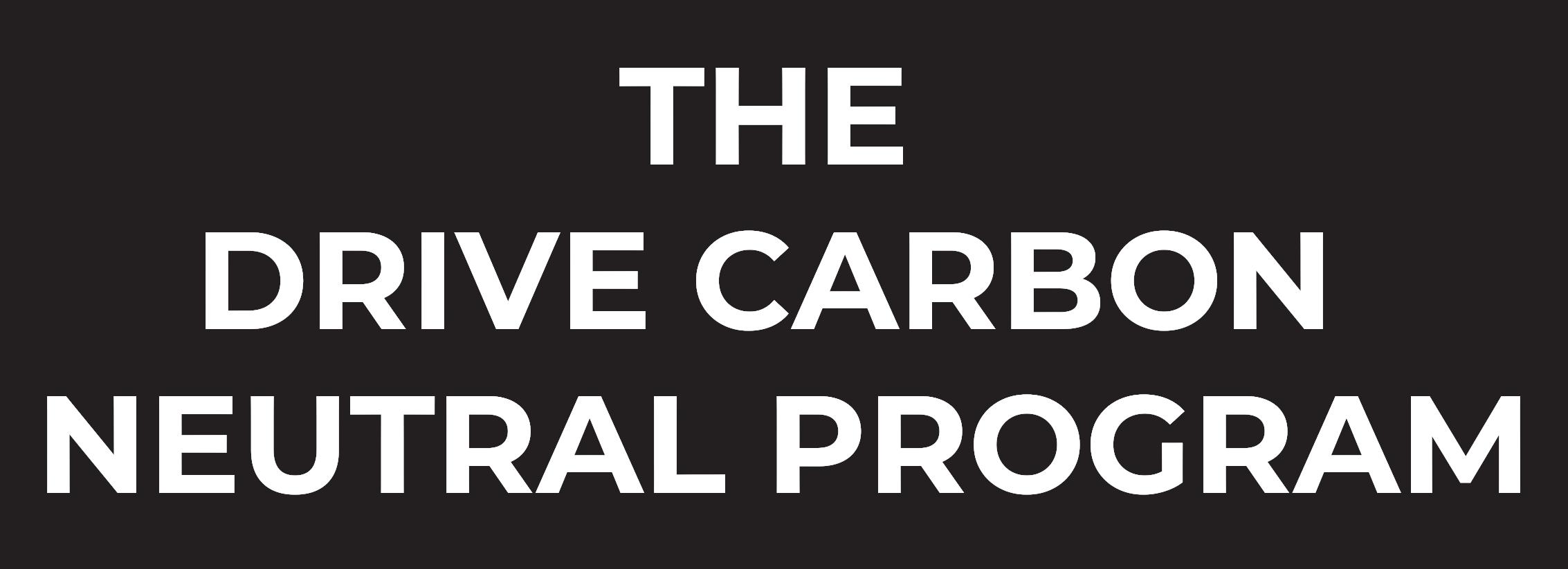
One hundred years ago, the state of Iowa was building roads for automobiles, creating a network of graded earth, gravel, and paved roadways.

Now the Iowa Department of Transportation deploys sophisticated pavement technologies, including heated pavements, high performance thin asphalt overlays, and updated pavement markings for autonomous vehicle technology.
“The Iowa Department of Transportation maintains an extensive database of roadway/bridge geometric data, conditions, and history. This allows us to utilize asset management tools and techniques to employ maintenance and construction activities at the optimal times to maximize the life of that infrastructure at the lowest cost,” said DOT spokesperson Andrea Henry. “These tools continue to advance and Iowa DOT continually seeks to improve our processes and materials to make the best use of the state and federal funding available to support our transportation system.”
Iowa’s Roads Were Built Piece by Piece “Iowa road building is not of the spectacular type. ... But even though Iowa is building her roads, even the main through roads, piecemeal, from year to year, from county to county, she has now reached a stage where the improved sections are already beginning to hook up into long mileages of finely improved roads.
“It is possible, for instance, already, to drive from Des Moines to Spirit Lake in Dickinson County on the north border of the state, on gravel or pavement the entire distance with the exception of about one half dozen miles of dirt road. And there are half a dozen different routes which may be chosen for a large portion of this journey.
“It is possible to drive from Des Moines to Mason City entirely on gravel; barring a comparatively few miles it is possible to cross the state east and west on permanently graded earth road; in another two years at most there will be choice of two or possibly three such roads...
... Iowans will wake up in another two or three years at the most, to the fact that entirely by piecemeal building, here and there, a little section at a time, always wiping out first the worst sections of the primary system in each county, that almost without realizing it or being conscious of it, they have been building and bringing rapidly to completion a wonderful highway transportation system that will give them good highway facilities to every corner of the state.”
– Iowa Motor Trades Bulletin, July 1922

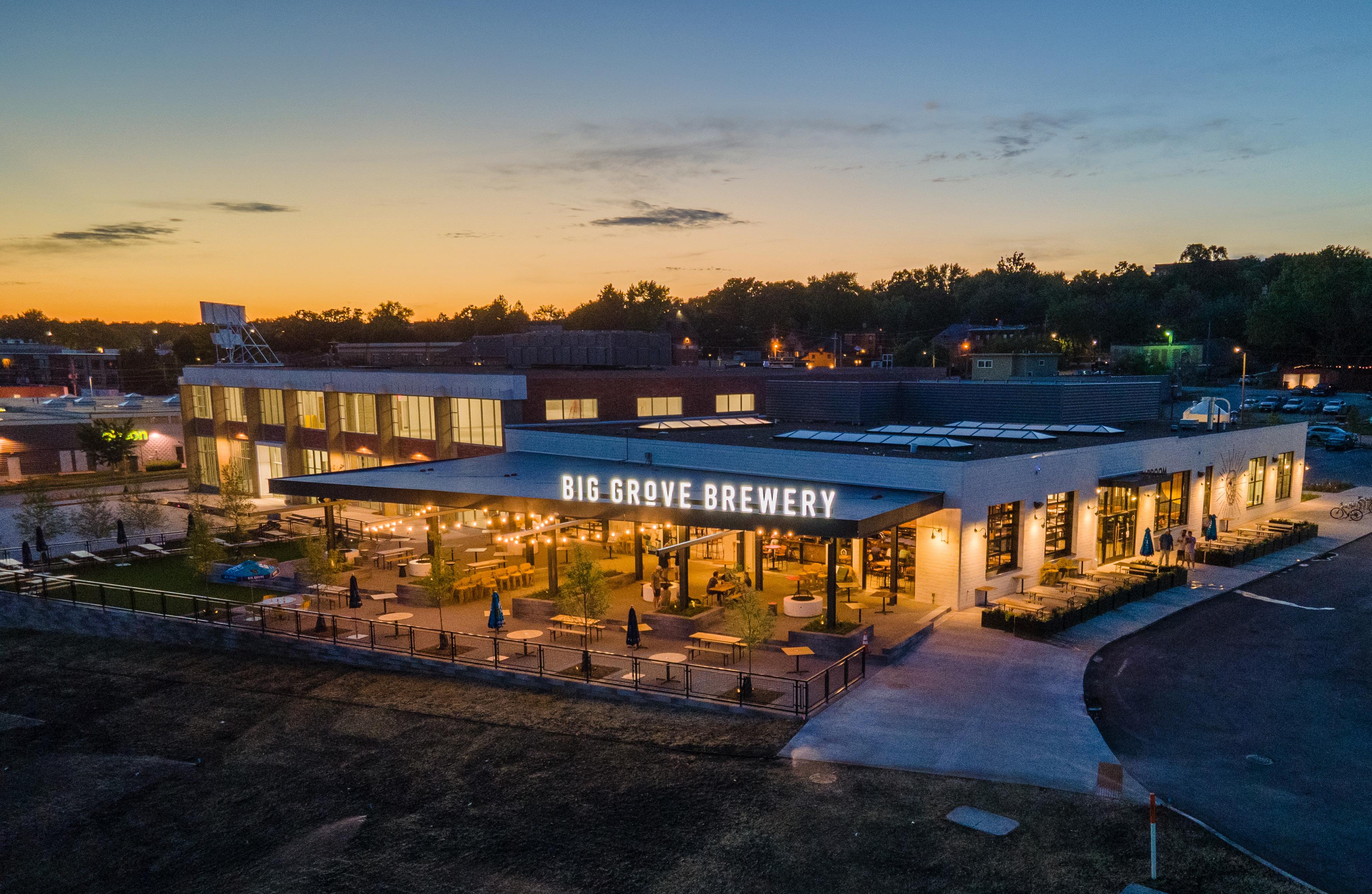
There’s just something about old dealership buildings that makes them the perfect fit for breweries and wineries. The latest former dealership to be converted into a brewery is the Crescent Chevrolet building in downtown Des Moines. It joins Santa Maria Winery in Carroll, Peace Tree Brewery in Knoxville, and Torrent Brewing Co. in Ames on the growing list of former showrooms that find new life after the dealership moves on.
555 17th Street, Des Moines | biggrove.com
Big Grove Brewery reimagined the old Crescent Chevrolet building, turning it into a vibrant taproom with indoor and outdoor space. The decor pays homage to the building’s original use, with a neon Crescent sign adorning the walls.
Through December 31, 2021
Polk 57, 491
Linn 27, 100
Scott 19,306
Dallas 16,813
Black Hawk 16,068
Woodbury 15,519
Pottawattamie 13,259
Johnson 13,207
Dubuque 10,611
Story 8, 106
Warren 7,287
Cerro Gordo 6,219
Clinton 6, 121
Webster 5,519
Jasper 5,343
Muscatine 5, 158
Sioux 5,049
Marshall 5,039
Des Moines 4, 714
Plymouth 4,655
New safety features can be unfamiliar to many car buyers— especially if it’s been a few years since they last purchased a vehicle! The National Safety Council and University of Iowa joined forces several years ago to create MyCarDoesWhat.org, a website dedicated to explaining safety technology in a way that is accessible and understandable. The website includes videos, quick guides, and infographics to help explain safety features from adaptive cruise control to traction control.
More than 200 students across the state of Iowa have received scholarships from the Iowa Automobile Dealers Foundation for Education in the past two decades.


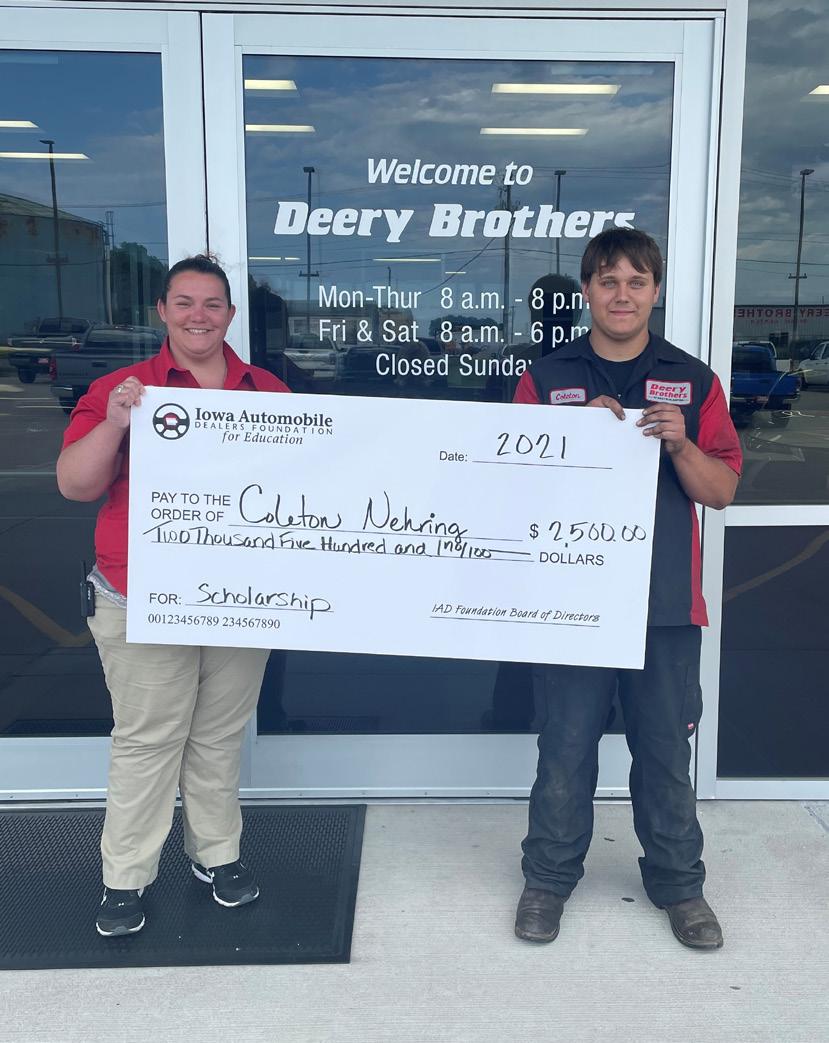
It’s almost time to select the next scholarship recipients.
Applications for the scholarships, which are due on March 1, 2023, will be available online in December. Scholarships can be used to pay for tuition, books, or even tools, helping set future dealership employees up for success from the start of their careers.

To learn more about the Foundation, go to iada.com/foundation.


dealers to know.
1Consumers are your best marketing tool. Treat them like it!
In this day and age, word of mouth is consumed faster than ever. Digital media, review and complaint sites, personal sharing on social accounts, and more allow for the speediest sharing of experiences. If a consumer has a poor experience with you, they will tell others. If a consumer has a great experience with you, they will tell others. Since we understand that word spreads like wildfire, we deem them our best marketing tool. Treat people well and they will tell others about their experience with your company! This will also result in your company being their first choice the next time they find themselves in this position. It’s a double win.
2If you come across a dispute with a customer, always give your time to listen.
Compensation for the issue at hand is an ideal outcome for consumers, but minimally they want to be heard, understood, and validated through their struggles. If they are automatically dismissed, that will give the consumer a reason to not trust you or your team. Often, a customer simply wants you to listen, hear their frustration, acknowledge that something was done poorly or not up to standard, and make sure it doesn’t happen again.
3Customers appreciate transparency. They don’t want to be surprised. Consumers like to know what to expect from the business they are working with, especially with such a large purchase and something they only purchase every five or more years. It could be beneficial to walk a customer through the steps of the purchasing process before they even
begin. Be sure to highlight the extra items or items available for purchase at a higher cost, as well any other areas where they will have decisions to make. This will allow them to not be blindsided and to be mentally prepared for the decisions to be made, and minimize the opportunity for rash decision-making.
Allow a customer time to think through a decision. A salesperson trying to rush or persuade you into making a decision when you are not comfortable doing so is a red flag in any purchasing process. Most people are taught to walk the other way if this happens. If you see discomfort or uncertainty in your customer, offer them as much information as they need or want, offer your business card, and then propose they leave to clear their head and process their decision. Especially for first-time buyers, this is a hard decision to make and it often helps to let the information sit with them overnight. Trust that if it’s the right decision for them, they’ll come back.
5Follow the BBB’s Five Gestures of Trust. They’re proven to increase trust levels.
Over a series of conversations and interviews in 2017, the Better Business Bureau determined the top five criteria that made consumers feel respected and therefore created trust between them and the business. These criteria are referred to as the Five Gestures of Trust, and are as follows:
1. Be honest.
2. Be transparent.
3. Be proactive.
4. Be humble.
5. Be equitable.

We can attest from our own experiences that utilizing these five characteristics during your sales interactions will make a positive impact on your sales.
Chris Coleman has been the president of the Better Business Bureau (BBB) serving Greater Iowa, Quad Cities, and Siouxland Region since 2004. The BBB works to create a marketplace where buyers and sellers trust each other. Discover more about the BBB by visiting bbb.org/iowa.
Federated DriveSAFESM leverages technology to give you and your company drivers consistent meaningful feedback about their driving habits.

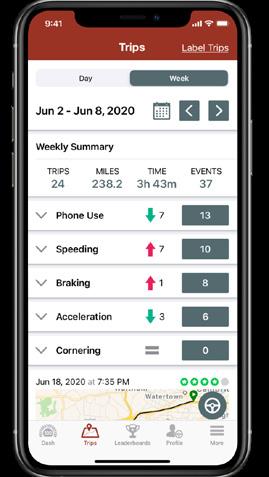
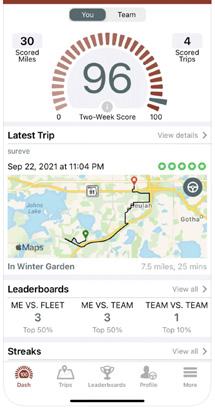
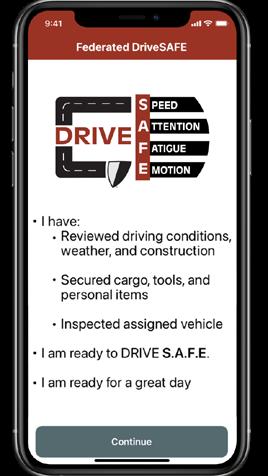


It’s Our Business to Protect Yours®
The priority for dealerships in this current economy is to stay laser-focused on the customer experience and coach solid business performance through process-driven leadership. Top retailers are taking advantage of technology to make sure that communication with customers remains the foundation of their daily, weekly, and monthly activities. This customer relationship principle remains true whether the product is internal combustion, hybrid, or any other type of alternative powertrain.
Two ways I’m teaching the future leaders of retail automotive to dominate in a free market are merchandising/marketing and staying curious about industry trends and techniques.
New and used vehicles need to be merchandised not only through pictures but also through including video walk around presentations conducted by enthusiastic sales professionals. Video should be the new normal for interactions with today’s busy guest. The
service department should be included in this presentation style of interaction not only in the initial write-up process, but also in the service shop diagnostic procedures. Managers will know this activity is happening on a consistent basis when the dealership is selling more wiper blades, tires, batteries, and cabin air filters.
Every employee that interacts with a customer should be put through sales training. All interactions are about sales. Future sales, current sales, past sales, and referral sales. Modern retailing is transactional, meaning that retailers that put the time and effort into providing a great guest experience need to be rewarded by a customer transaction and more often than not the desired outcome happens simply by asking for the sale.
Dealers that empower all customer facing employees to be ambassadors of sales and service through process-driven training are finding themselves growing the business with higher gross profits and satisfied, loyal, repeat buyers.
— ELGIE BRIGHT Automotive Marketing Department Chair Northwood University
The future of automotive retailing is coming. Experts discuss how dealerships can be prepared.
QUESTION
What is the most important thing dealerships can do to prepare for the future of automotive retailing?

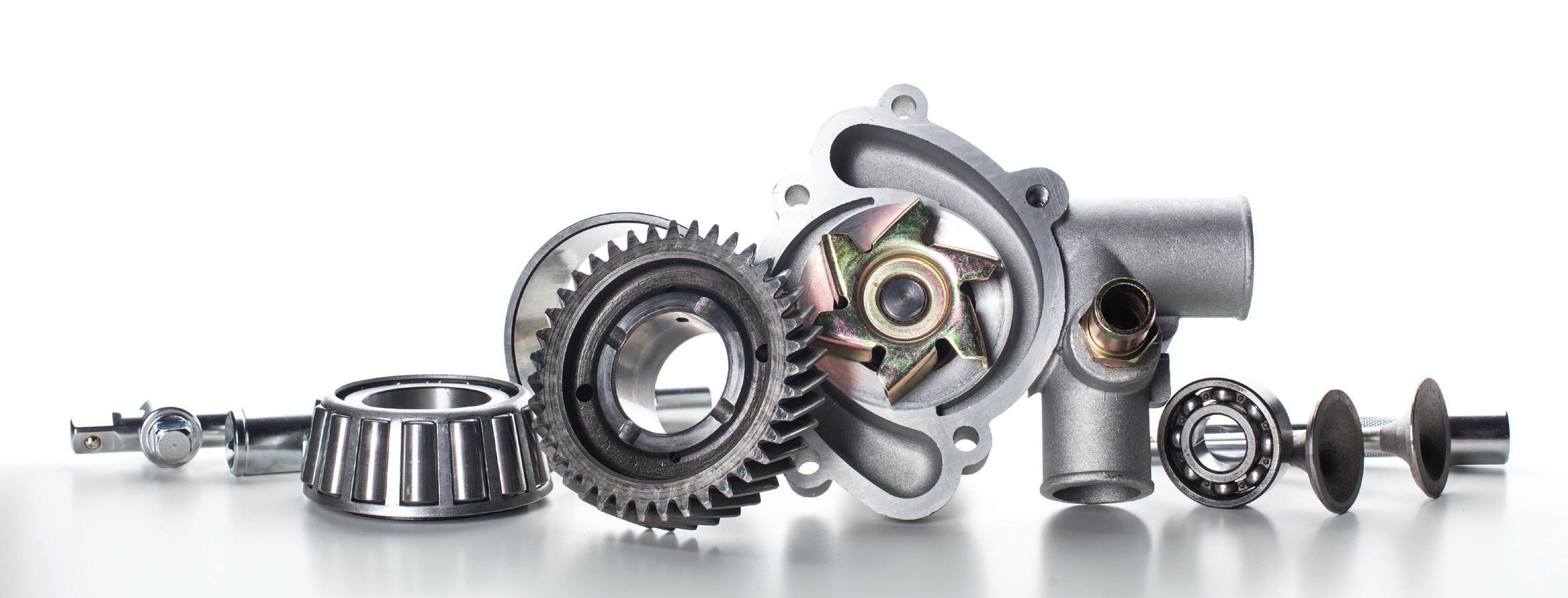

I strongly believe that the future of automotive retailing is a one-two punch of digitally assisted sales combined with fully automated e-commerce delivering frictionless experiences, regardless of consumers’ purchase path. Research shows that 76% of consumers are open to buying a vehicle completely online— and 26% of consumers want an Amazon-like experience. There is a ton of value for dealers, lenders, and consumers to run toward a more digital buying experience and fully online e-commerce.
For dealerships that are starting in this transformational journey, I would focus on embracing digital contracting and remote signing with each deal to begin modernizing their F&I processes and deploying a digitally assisted selling capability such as Accelerate My Deal. For dealerships that are already using those capabilities with each deal, I would begin considering the implications and transformation required by a one-price model and would work toward bettering their online merchandising (for example, by adding 360-degree imaging). Bottom line is, for dealerships to be prepared for the future of automotive retailing they need to transform across F&I, operations, inventory, merchandising, and marketing. Now is the time to start this journey to prepare for the future.

The adage that “the times are changing” still holds true. However, in the retail automobile business, it should be “the times have changed.” With the pandemic and associated supply issues, the old normal for retailing cars has been drastically altered. We believe that the most important thing dealerships can do to prepare for the future of automotive retailing is to acknowledge, understand, and embrace the new normal.
The customer’s experience and expectations are changing. Prior to the pandemic there were very few cars purchased online. Post-pandemic, that number is estimated at 30%. Today, most customers begin their purchasing experience online. Customers want information at their fingertips—not only information on the specific vehicle and availability but also on financing options. Surveys have shown that customers no
longer want to spend hours driving to different dealerships. They also don’t want to spend hours at the dealership negotiating and filling out paperwork.



Dealerships that cannot provide a seamless, simple, and efficient process will lose customers to those that have embraced the changes and begun the process of digital transformation.


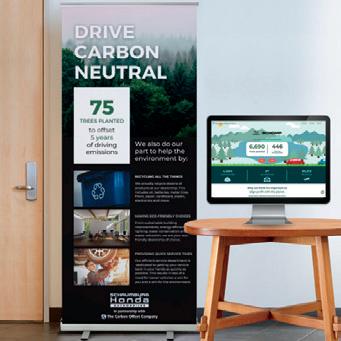

Times have changed and the dealers that will be successful in the future know it, understand it, and have adapted to it.
— TOM GOEKELERAttracting talented employees is just the first step. Then you need to make them want to stay.

A dealership is only as good as its people, which is one of many reasons why dealers are always on the lookout for new ways to find and keep talent.

And dealerships have been talking about recruiting and retaining employees since long before the Great Resignation and quiet quitting came to the forefront of the national conversation.
It’s no secret that turnover at dealerships has historically been high. The 2021 NADA Dealership Workforce Study found an average
rate of 46% nationally and 43% in the region including Iowa. That’s nearly half of a dealership’s employees changing every year.
Added to that, finding quality candidates to fill those open positions is a challenge. And now it’s a candidate’s job market, so dealerships need to work harder than ever to recruit good candidates and get them to stay.
“We all know the job market is tough right now,” said Jerry Burns, automotive program chair at Des
Moines Area Community College.
“Students and recent grads are looking for jobs in which the wage is good and working conditions, including how they are treated, is good.”
“Proactive employers are looking to fill positions before they actually need them,” said Burns. “They are realizing they can’t just pick up the phone and hire someone off the street. So they work with their local community colleges and attend job
fairs, host open houses, participate in advisory committee meetings at the school, allow high school students to job shadow, and any way they can stay connected to high school students and their local community college helps the employers find the best candidates.”
Attending career fairs and working with community colleges is an essential part of a recruiting strategy. But attracting potential employees starts even more simply.
“Every employee is a recruiter,” said Monte Wyatt, a certified leadership coach and organizational development facilitator. “Every employee is an attraction—or lack of attraction—to the business.”
A customer who brings their car in for service or who purchases a car could be wowed by the way your employees represent the dealership— or completely turned off. If a manager is seen speaking rudely to an employee, a job-seeking customer may not apply for an open position. But if the cashier at the service counter confides how much she loves her job while waiting
for the customer’s vehicle to be brought around it would leave a very different impression.
“Everyone has to know that they are the face of the company when they’re out in public,” Wyatt said.
Current employees can also help identify potential hires.
“Everybody should know what we’re looking for so they can be on the lookout of who would be great to add to our team,” said Wyatt.
Changes in the hiring process, from job postings to interviews, can help find candidates that fit your dealership. That’s because, when done well, recruiting involves finding employees that are the right fit for your organization, not just someone to fill a seat.

Those adjustments begin with writing the help wanted ad.
“Every ad is the same,” Wyatt said. “You’ve got to talk about what makes us as a company different.”
Wyatt suggests including the company values and the qualities or
“Every employee is a recruiter. Every employee is an attraction—or a lack of attraction— to the business.”
—MONTE WYATT

behaviors the dealership is looking for in a candidate
“We have to touch the emotion of the applicant to say ‘That’s me. I want to work there,’” Wyatt said. “And that’s a different approach than most advertisements for job postings are today.”
Wyatt cautioned that if you’re not getting applicants, or the type of applicants you want, it’s time to be introspective.
“It’s not the people, it’s us in how we’re advertising it, it’s how we’re positioning it,” he said.
And once applicants come in for an interview, Wyatt suggests focusing more on fit and less on skills.
“We need to start interviewing on our core values,” Wyatt said.
Skills can be taught, so ask candidates questions that will show how they live your dealership’s values.
“That is a part of how do we get the work done and what kind of culture do we desire? And everyone should align with that culture,” said Wyatt. “If the culture is we work and stay until it’s done, well you’re going to separate yourselves from people that don’t want that.”
What’s your dealership’s story? In a world where we consume content
24/7, your dealership needs a narrative that entices people to want to work there. Defining it is step one.
“People are looking elsewhere because they’re not, I’m going to put it this way, they’re not emotionally connected to their employer,” Wyatt said. “And what I mean by emotionally connected is, as employers, we’ve got to help our team see why they should be with us. Why am I the right place for them to be working? And what’s exciting about us?”
Dealerships need to be able to tell their story, tell why their business matters, and tell why their employees want to work there.
“It can’t be a made-up story. It has to be real,” said Wyatt. “It has to be what’s already happening, but how do we tell it in a connecting fashion?”
Dave Wright Nissan Subaru found that having a clear career path through a formalized training program helped attract job seekers.
“We have really always had in-house training, we just never had the career path laid out on paper for everyone to see,” said Sydney Wright, the dealership’s director of marketing.
The dealership’s seven-level training program goes from the express level, where employees
are trained in oil changes and tire rotations, all the way up to master technician. Each level has a suggested time frame for how long it takes to complete, but Wright noted that it is dependent on the person and how quickly they learn. Employees do not have to start at the first level and work their way up—instead they are placed at a level determined by their experience.
“The biggest surprise has been that it is most popular with express level technicians,” Wright said. “It really opened a door for us to recruit people who have mechanical skills, but don’t necessarily have any experience in the field.”
Making changes to employee benefits can also make a big difference when it comes to recruitment and retention. Many job seekers have benefits they are looking for. Paid vacation and medical insurance top the list (see sidebar on page 21).
The state of Iowa published a statewide laborshed analysis in April 2022 that found that just under half (48.8%) of Iowans surveyed would prefer to look for jobs where the employer covers all health insurance costs, and 50.5% were willing to share the cost with their employer.
Compensation. Benefits. Turnover. Hours of operation.
All those data points (and more!) are examined in NADA’s annual Dealership Workforce Study. The comprehensive study allows dealers to see how their business compares to other, similar dealerships.
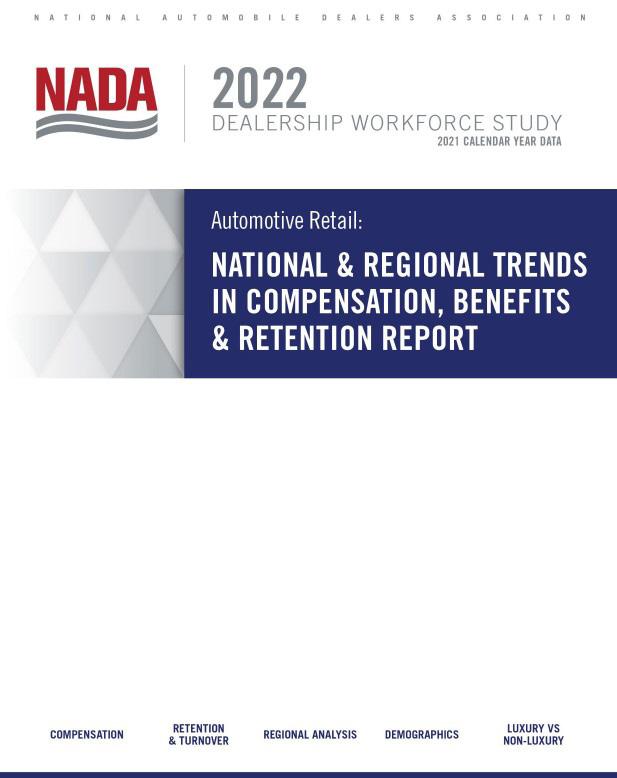
Participating dealerships receive a custom comparison report showing how their dealership compares to its peers, a report analyzing national and regional trends, and access to an online database of compensation data.
For information on the study and to sign up for the 2023 study go to iada.link/DWS.
“In the majority of cases the data shows that the cost sharing of medical insurance premiums is an influential benefit option for those considering employment offers,” according to the analysis.
Rick DeBartolo is the senior vice president at Assured Partners, an IADA preferred provider. He works with companies on their employee benefits and has seen firsthand what a difference benefits can make in recruiting.
He pointed to a central Iowa manufacturer that was facing high turnover rates. They had so many job openings they weren’t able to fulfill orders in a timely manner and knew they needed to do something to address both recruitment and retention. So they went big, opting to pay for full health insurance coverage for employees and their families.
“From a recruiting perspective, it gets people’s attention,” said DeBartolo. “It was a bold move, but I think it was a really good move, and I won’t be surprised if we see more employers go that direction.”
But health insurance isn’t the only factor. Employees have come to expect fully fledged benefits programs, although what that looks like varies from business to business.
“The common thing that I see, if I see a common mistake, is kind of being half in, half out,” said DeBartolo. “What I mean by that is I’m willing to put a benefit out there and willing to buy a health insurance plan and willing to buy dental, vision. But I’m not going to pay very much of it. That just does not work. You have to look at the benefits as part of the total compensation that you’re providing the employee and you’ve got to be able to communicate that to them.”
The Iowa Statewide Laborshed Analysis reveals reasons why employees stay or go. Job satisfaction, a good working relationship with the
employer, benefits, and wages were the top reasons for Iowans to stay with their current employer, while better wages, employer layoffs, advancement opportunities, career change, and working conditions were the top reasons for looking to make a move.
“Having a set career path with the knowledge of what it takes to get to the next step has increased retention as well,” Wright said, reflecting on the success of her dealership’s training program.
DMACC’s Burns pointed to two factors that influence whether a new service tech changes companies.
“Pay is one item that pushes students from one dealer to another but so does how they were treated,” he said.
Treating employees well and compensating them fairly are good business decisions. But dealerships also need to turn a profit.
“We have to start balancing people and productivity if you want to keep your employees,” said Wyatt. “You want to recruit the right employees, you have to balance how we are taking care of our people and being profitable. If we focus solely on people, we miss out on productivity. If we solely focus on productivity, we miss out on people aspects.”
Burns, who has taught at DMACC since 2004, has worked with hundreds of students. It’s hard for him to see talented techs leave the industry because of something businesses could control but the employees can’t.
“I just hate it when I see a graduate who decides to go into plumbing or be an electrician after they finish automotive school and you ask them why. The response is well, they are paying me $30 an hour hourly with a van to start,” said Burns. “I have had many graduates tell me they love automotive but the earnings fluctuate so much based on so many things out of my control I can’t afford to do it.”
Unemployed Iowans are looking for jobs that offer:
1. Paid vacation (95%) and holidays (94%)
2. Health insurance (92%)
3. Retirement plans (92%) 4. Dental insurance (88%) 5. Vision insurance (83%)
6. Incentive reward programs (80%)
7. Life insurance (80%)
8. Disability insurance (78%) 9. Hiring bonuses (69%)
10. Prescription drug coverage (69%)
11. Flextime (69%)
12. Employee discount (67%)
Source: State of Iowa Laborshed Analysis


When a manufacturer and dealership turn to the courts to resolve a dispute, there are takeaways for everyone.
PHOTO BY CORGARASHU/SHUTTERSTOCK.COMUsing the legal system to resolve disputes between dealerships and manufacturers is as old as the automotive retail industry. In recent years, a number of Midwest dealership groups have experienced the high stakes of litigation—and come out the other side with teachable moments for the entire industry.

Motor vehicle franchise laws are nuanced and unique to the state they govern. In Iowa, for example, the Motor Vehicle Franchise Act was enacted with the intention of protecting the public and ensuring the continuation of “locally available service” in addition to leveling the playing field between manufacturers and dealers.
“State franchise laws correct the imbalance of power present between OEMs and dealers in their contracts,” said Lauren Bailey, director of franchising and state law at the National Automobile Dealers Association. “Due to antitrust laws in the United States, dealers are unable to collectively come together to negotiate a better deal (or anything) with their manufacturers. Also, any single dealer is unable to negotiate the franchise
agreement with the manufacturer. The only remedy for dealers is for the state legislature to regulate the relationship between the dealer and the manufacturer on the state level.”
When disagreements arise that fall under the Iowa Motor Vehicle Franchise Act, courts can get involved unless the two sides resolve the dispute before it gets to that point.
“Litigation is by far the costliest and most time-consuming approach to resolving disputes,” said Bailey. “It
should be used as a last resort when all options have failed.”
Over the years, dealers and manufacturers in Iowa and across the country have resorted to litigation, with the results in some cases setting legal precedent and in others offering lessons to their fellow dealers.
If a disagreement arises between a dealership and a manufacturer,
“State franchise laws correct the imbalance of power present between OEMs and dealers in their contracts.”
—LAUREN BAILEYPHOTO BY BELL KA PANG/SHUTTERSTOCK.COM
don’t expect the manufacturer to back down.
“Certain manufacturers, like General Motors, are becoming much more difficult to deal with and they are also becoming far more persistent,” said John Lorentzen, an attorney with Nyemaster Goode PC who has represented dealerships in a number of cases. “They’ll go on and they’ll file in multiple venues. They’ll be litigating administrative actions as well as in federal court and they’ll be raising a lot of issues, which they hadn’t raised before.”
It doesn’t seem to matter whether the dealership is big or small, rural or urban. Some manufacturers are willing to spend time and money to take disputes to court.
“If you get into a fight with some manufacturers it could be lengthy and in more than one venue,” Lorentzen said.
The other thing to keep in mind is that manufacturers are willing to challenge existing state law.
“The language in the dealer agreements will generally be controlling unless those provisions are ‘overwritten’ by Iowa law,” said John Hofmeyer IV of Arenson Law Group PC, which specializes in auto dealer law. “It is important to note that automobile manufacturers continue to challenge Iowa law in order to enforce the terms of the dealer agreements.”
One recent case saw General Motors challenge the constitutionality of Iowa law governing dualing, which has not been successful to date. Conversely, earlier this year Peterbilt
persuaded the Iowa Supreme Court that it could appoint an additional dealer into an existing dealer’s area of responsibility.
Although many manufacturers are willing to fight, that’s not universally true.
“Not all franchisers are litigious,” said Hofmeyer. “It is now evident that certain automobile manufacturers are invested in challenging existing Iowa laws that dealers have come to rely upon. Before taking any action in reliance on existing law, automobile dealers should assess the possible consequences, including the costs involved in pursuing an enforcement of rights. An attorney focused on automobile dealership law is more likely to have the experience to counsel dealers and they are typically willing to work with dealers’ local counsel.”
Dealerships generally have relationships with local attorneys who can advise on general business issues, but automotive franchise law is a specialized area.
“Attorneys focused on automobile dealership law are more likely to be aware of trends with respect to automobile franchise law,” said Hofmeyer.
Dealers need to remember that manufacturers all have specialized attorneys working on their behalf.
“Generally, in any situation that involves a manufacturer, a dealer would be well advised to speak to an experienced franchise attorney,” Bailey said. “The manufacturers all
IADA maintains a legal defense fund to provide financial and other support to member dealers who have a dispute with a motor vehicle manufacturer involving franchise issues. The fund may also be used to provide support to other auto dealer associations involved in a dispute that will impact Iowa dealers.
Funds are collected through voluntary contributions and held in an investment account until they are needed.
To apply, member dealers should contact IADA President Bruce Anderson. Any Legal Defense Fund (LDF) distributions must be approved by the IADA Board of Directors. The board examines criteria including whether the case will have an impact on a broad class of IADA members when deciding whether to approve an LDF request.
“Franchise statutes offer significant protection for dealers in Iowa, but there are limits to that. ”
—JOHN LORENTZEN

have highly skilled attorneys on their side. Dealers should as well.”
Lorentzen advises that dealers talk with a franchise lawyer when:
• A manufacturer objects to a proposed change in the dealership’s operations or location.
• The dealership is proposing to make a change that requires approval by the manufacturer.
• The dealership is proposing to make a change prohibited by the franchise agreement.
• A manufacturer has sent
them a notice that they are terminating a franchise or adding a franchise to their location.
“I don’t know that a county seat lawyer should get involved in those issues,” said Lorentzen.
If a dealer is in a dispute with a manufacturer, a franchise attorney can help them determine whether and how to proceed.
According to Hofmeyer, the dealership’s lawyers should help determine:

• Which franchisers may relent and which will resist.
• What benefits (financial or otherwise) may be gained if the dealership acts.
• The cost of taking action.
• What other consequences (positive or negative) may occur if the dealership acts.
“You really need to know what the manufacturers are up to and how they work,” Lorentzen said.
A case from the 1980s holds a cautionary tale for dealerships. In Beckman v. Carson, the dispute
HOFMEYER IV“It is now evident that certain automobile manufacturers are invested in challenging existing Iowa laws that dealers have come to rely upon.”
—JOHN
wasn’t between a dealership and manufacturer. Instead, the issue was a disagreement between the buyer and seller.
In that particular case, the dealership purchase agreement included a provision conditioning the sale upon the buyer receiving a dealer agreement from the manufacturer. This condition in the contract removed the sale from the protections of Iowa Code Section 322A.12, which generally provides that a franchiser shall give effect to the sale or transfer of ownership of an automobile dealership. (In non-lawyer terms, “shall give effect” means the franchiser does not have to approve it for it to happen.) This particular buy/sell agreement ended with a dispute between the buyer and seller that made it all the way to the Iowa Supreme Court. The court found that based on the language in the purchase agreement making the sale subject to approval by the franchiser the parties did not intend that the buyer would obtain its franchises by operation of law.
“Therefore, buyers and sellers
of automobile dealerships in Iowa must be careful not to inadvertently circumvent the dealership transfer protections otherwise granted under Iowa law,” said Hofmeyer.

Keep in mind, in that particular case, the dispute was between the buyer and seller—the manufacturer was not appellant or appellee. The lesson for dealers is that in disputes between a dealer and a buyer, some of the protections of 322A may not apply if they make their transaction contingent on the issuance of a dealer agreement that doesn’t get issued.
“Whether that will allow the manufacturer to avoid recognizing the transfer is an unanswered question in a dispute between the manufacturer and a buyer or seller,” Lorentzen said.
No matter what the circumstance, dealers should proceed with caution before agreeing to something that would remove the protections of the motor vehicle franchise act.
“Waiving provisions of state franchise law, where applicable, should be done with caution and only with the consultation of counsel,” said NADA’s Bailey. “Without the
protections of the state franchise laws, the power imbalance returns to the manufacturer.”
“Franchise statutes offer significant protection for dealers in Iowa, but there are limits to that,” said Lorentzen. “And the issue usually is whether the manufacturer has decided to litigate whatever dispute they might have with the dealer. That’s the biggest risk they have, because that’s costly. They are not protected against litigation.”
Many of the cases Lorentzen has had are termination cases where the manufacturer must prove good cause. That’s a high standard.
“That’s not to say that manufacturers won’t argue about whether they have it or not,” Lorentzen said. “What I’ve seen more of is that when manufacturers decide that they’re going to dispute some action by the dealer, they are persistent.”
As with any dispute, dealers need
to know when it’s worth it to fight and when the best course is to back down.
“If Iowa automobile dealers, individually and collectively, do not take reasonable actions to enforce the provisions of Iowa law then automobile manufacturers succeed at circumventing those laws,” Hofmeyer said.
If they remain unchallenged, manufacturers could:
• Unreasonably alter a dealership’s area of responsibility or community.

• Refuse to pay retail warranty reimbursement for parts and labor.
• Prevent a sale or transfer of ownership.
“In summary, Iowa automobile dealers must carefully choose which battles to fight,” Hofmeyer said, “however, if dealers never act to enforce their rights than the protective laws are of no consequence.”
Perhaps the most important thing that dealers can learn from the legal battles of fellow dealers is two-fold: Be familiar with relevant Iowa law, but bring in experts who know automotive franchise statutes and who will work with your best interests at heart.
While IADA can provide general guidance, dealers will need to consult with their attorneys on issues arising from manufacturer disputes.
In the meantime, Lorentzen and Bailey recommend dealers stay up-todate with information from their state and national associations.
“Iowa dealers are well served by their dealer association, their state executive, and, through those two things, their state franchise law,” Bailey said.
Lorentzen agreed, saying “They should, frankly, stay in contact with [IADA] about concerns that they have, because IADA has undoubtedly been the best voice in the state for protecting dealers and community’s interests.”
“Litigation is by far the costliest and most time-consuming approach to resolving disputes. It should be used as a last resort when all options have failed.”
—LAUREN BAILEYPHOTO BY PROSTOCK-STUDIO/SHUTTERSTOCK.COM
Make sure your business makes the most of its membership.
Every member reaps the benefits of IADA’s day-to-day work.
IADA works with legislators, regulators, and other government officials to fulfill the association mission of protecting and preserving the motor vehicle franchise system. This work ranges from being at the state capitol every day the legislature is in session to serving on advisory committees and facilitating dealership tours with elected officials.
Recent legislative successes include:
• Stopping legislation that would require at least 25% of new vehicles sold in Iowa to be flexible fuel vehicles starting in 2025.
• Working with the legislature to pass a bill that regulates the sale of catalytic converters to scrap metal dealers and introduces penalties to reduce theft.
• Advocating for legislation that establishes guidelines for parts and labor warranty reimbursement.
The association hosts an annual Dealer Day at the State Capitol for dealers and key managers to meet with legislators and promote the automotive retail industry. The 2022 event had more than 100 legislators and legislative staffers talking with dealers about electric vehicles.
IADA works closely with the Department of Transportation, Department of Revenue, and county treasurers to develop processes and policies that meet the needs of both dealers and consumers while adhering to Iowa law.
IADA works with OEM executives, advocating for dealer interests and providing context of how manufacturer programs fit with Iowa law.
Promoting the automotive retail industry is an essential part of the association’s mission. This happens through:
• Media relations
• Participation in panels and workshops
• Representing dealers on state and national committees
IADA Services provides best-in-class dealership forms and supplies at a competitive rate. After all, members own the place!
But forms and promotional products isn’t all IADA Services does. Whether a dealership needs help procuring a dealer bond or transitioning to e-forms, IADA Services can assist. Shop at store.iada.com or reach out to promoprint@iada.com with questions about IADA Services.
Each IADA member receives a copy of the annual membership directory, packed with valuable information ranging from a dealer license directory to contact information for county treasurers.
Some benefits are available to all members, but dealership employees must choose to take advantage of them.
Read archived newsletters and regulatory guidance. To request access, go to iada.link/ request
Dealer bond renewals and updates are simple when you’re part of IADA’s dealer bond program. IADA Services staff can procure new bonds, update DBAs on your existing bonds, and seamlessly coordinate annual renewals.
Get the Iowa-specific updates you need from the comfort of your desk. Educational webinars on a variety of topics are offered throughout each year.
The award-winning Iowa Auto Dealer magazine is distributed to members twice a year. To add someone to the magazine’s distribution list, visit iada.link/mag.
Sometimes, you just need to be with your peers. IADA facilitates in-person meetings for members only, including Executive Management Meetings and compliance training opportunities each year.

The weekly newsletter provides regulatory and legal guidance and timely updates dealerships need to stay in compliance. To add someone to the distribution list, visit iada.link/newsletter.
Only a select few vendors make it through the rigorous vetting process conducted by IADA staff and the board of directors to become preferred providers. IADA members can access these best-in-class services knowing that they have the recommendation of the association. See the complete list of preferred providers at iada.link/ vendors
The titling and registration process is complex, which is why IADA serves as a resource for dealership employees. IADA employees can help troubleshoot problems, consult with county treasurers and the DOT, and provide in-person training if needed.
The regulatory landscape surrounding automotive retailing is complicated. When you have a question, IADA can help. IADA staff has subjectmatter expertise on many facets of automotive retailing—and if we don’t know the answer, we know someone who does.


Our firm has completed over 100 dealership buy/sell transactions throughout the Midwest and beyond. When you consider the importance of these transactions, you want us on your side of the table. See how you can put our experience to work at Arenson Law Group, PC.

